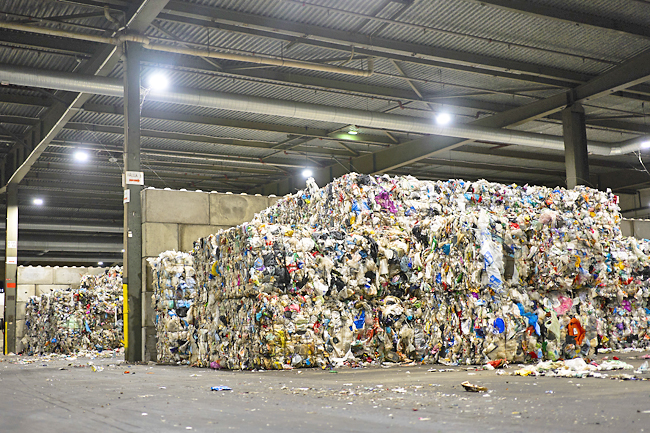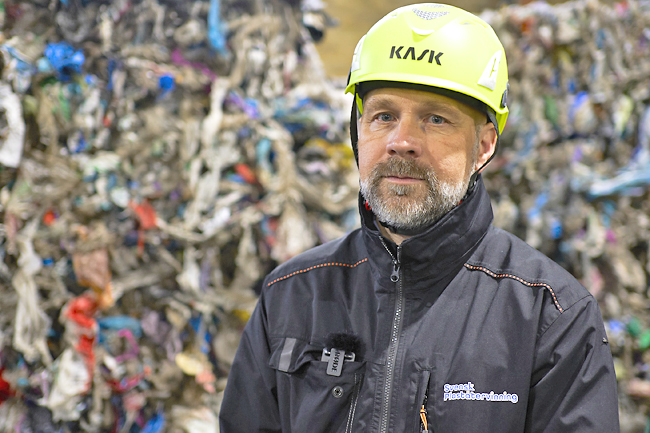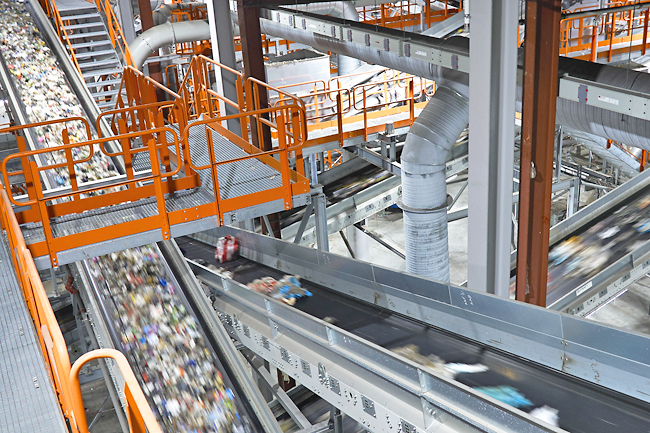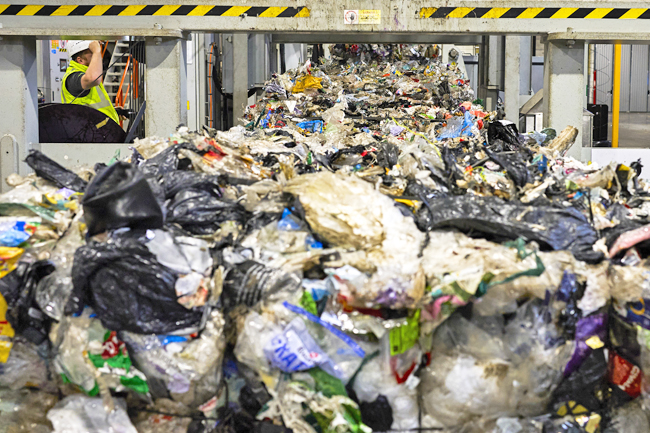AP – A new plastics sorting facility inaugurated in Sweden on Wednesday is being billed as the largest of its kind, and one designed to double the amount of plastic packaging materials being recycled in the Nordic country.
Thanks to cutting-edge technology, the Site Zero plant in the central city of Motala can sort up to 200,000 tonnes of plastic packaging a year, according to Sweden Plastic Recycling, a non-profit company co-owned by Swedish plastics, food and trade industry groups. The company said that’s more than any other sorting facility in the world.
A unique feature of Site Zero is that it can separate up to 12 different types of plastic.
An old plant at the same location could only sort five types of plastic, which meant that only 47 per cent of the material was sent on for recycling and the rest was incinerated, said Sweden Plastic Recycling Chief Executive Officer Mattias Philipsson.
The new plant will be able to send up to 95 per cent of the packaging for recycling, minimising the amount that is incinerated. Burning plastic has a climate impact by adding greenhouse gasses to the atmosphere. The world produces more than 430 million tonnes of plastic annually, two-thirds of which are short-lived products that soon become waste, filling the ocean and, often, working their way into the human food chain, the United Nations (UN) Environment Programme said in an April report.




Plastic waste produced globally is set to triple by 2060, with about half ending up in landfill and under one-fifth recycled. Efforts to create a landmark treaty to end global plastic pollution are taking place in Kenya’s capital, Nairobi, where nations, petrochemical companies, environmentalists and others affected by the pollution are gathered for UN-backed negotiations.
At Site Zero, the roar of the machines is deafening as conveyor belts carry 40 tonnes per hour of mixed plastic waste through the entrails of the factory.
Gradually, as the chocolate wrappers, plastic bags, yogurt containers or white polystyrene progress across the 60,000 square-metre complex, it’s broken down, separated by size and sorted in a fully automated process reliant on infrared cameras.
“It’s a game changer,” said Åsa Stenmarck of the Swedish Environment Protection Agency.
“Not just the sorting itself, but that they actually believe there is finally a market” for all 12 types of plastic sorted by the plant.
Researcher Robert Blasiak at the Stockholm Resilience Center said Sweden is “ahead of the curve” when it comes to plastics recycling, and that waste management in many other parts of the world has a long way to go.
“A closed loop for plastics has to be the end goal, really, not just for corporations and governments, but for this UN plastics treaty that’s being negotiated now,” he said. “And that means that every stage along the plastic lifecycle, basically the emissions moving through these life stages need to be reduced to zero.”
Once sorted, plastic can be recycled in the conventional, mechanical way or via a chemical recycling method, which typically uses heat or chemical solvents to break down plastics into liquid and gas to produce an oil-like mixture or basic chemicals.
Industry leaders say that mixture can be made back into plastic pellets to make new products. But environmental groups said that chemical, or advanced, recycling is a distraction from real solutions like producing and using less plastic. – David Keyton




